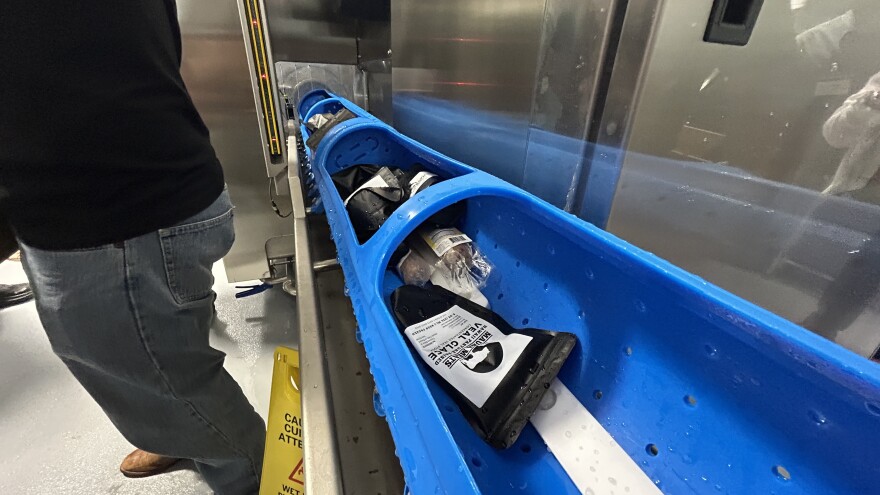Hawaiʻi officials continue to encourage the export of value-added foods — which, in turn, would also help local agriculture — after formally creating a framework to support local farmers and business owners.
This year, state lawmakers passed House Bill 774 to establish a Food and Product Innovation Network within the state Agribusiness Development Corporation.
The purpose of the network is to allow local entrepreneurs to capitalize on “made in Hawaiʻi” branding by supporting the production of value-added products, like ʻulu chips or poi with a longer shelf life.
That support is focused on processing capacity and storage facilities to help business owners and farmers scale their operations.
“These facilities will enable local producers to create value-added products, increase production capacity, and access larger markets, ultimately strengthening Hawaiʻi’s agricultural sector and boosting economic resilience,” the University of Hawaiʻi Community Design Center said in a report on the FPIN prepared for the ADC.
Sen. Donovan Dela Cruz, who’s a proponent of increasing the export of value-added goods made in Hawaiʻi, said they can use off-grade fruits and vegetables that might not be used otherwise.
“The whole idea of value-added is to help our agriculture industry. For instance, if you have tomato farmers, they can't sell, sometimes, up to 50% of their product and they end up tilling it back into the soil,” Dela Cruz said. “With value-added (goods), we've created a class of entrepreneurs who will buy the off-grades or seconds from the farmer, and they can process ketchup, tomato sauce, salsa and other products that don’t require the A-grade product.”
There’s nothing wrong with those fruits and vegetables — but they are often not sold just because they have minor cosmetic imperfections.
“It could just have a discoloration. … For bell peppers, there's three bumps instead of four. It's still good. But if you end up cutting that up and processing it into another product, then you're helping the farmer and you're helping the entrepreneur,” Dela Cruz said.
Functionally, there’s already a growing network in the state. Dela Cruz said there are education programs in schools that encourage potential entrepreneurs who may be interested in producing value-added products.
Additionally, the facilities like the Wahiawā Value-Added Product Development Center on Oʻahu and the Maui Food Innovation Center — both UH programs — already allow for additional processing and storage for entrepreneurs.
There are also plans for more of those facilities across the state.
Dela Cruz said HB 774 and the formal creation of the FPIN will help Hawaiʻi develop partnerships with out-of-state groups in areas where locally-made products can be exported.
“We can start to partner, we can start to do exchanges. We want to be able to do food and product innovation conferences here, inviting all the different networks — that's the external component,” he said.
He said there are similar food networks in countries like New Zealand, South Korea and the Netherlands.






